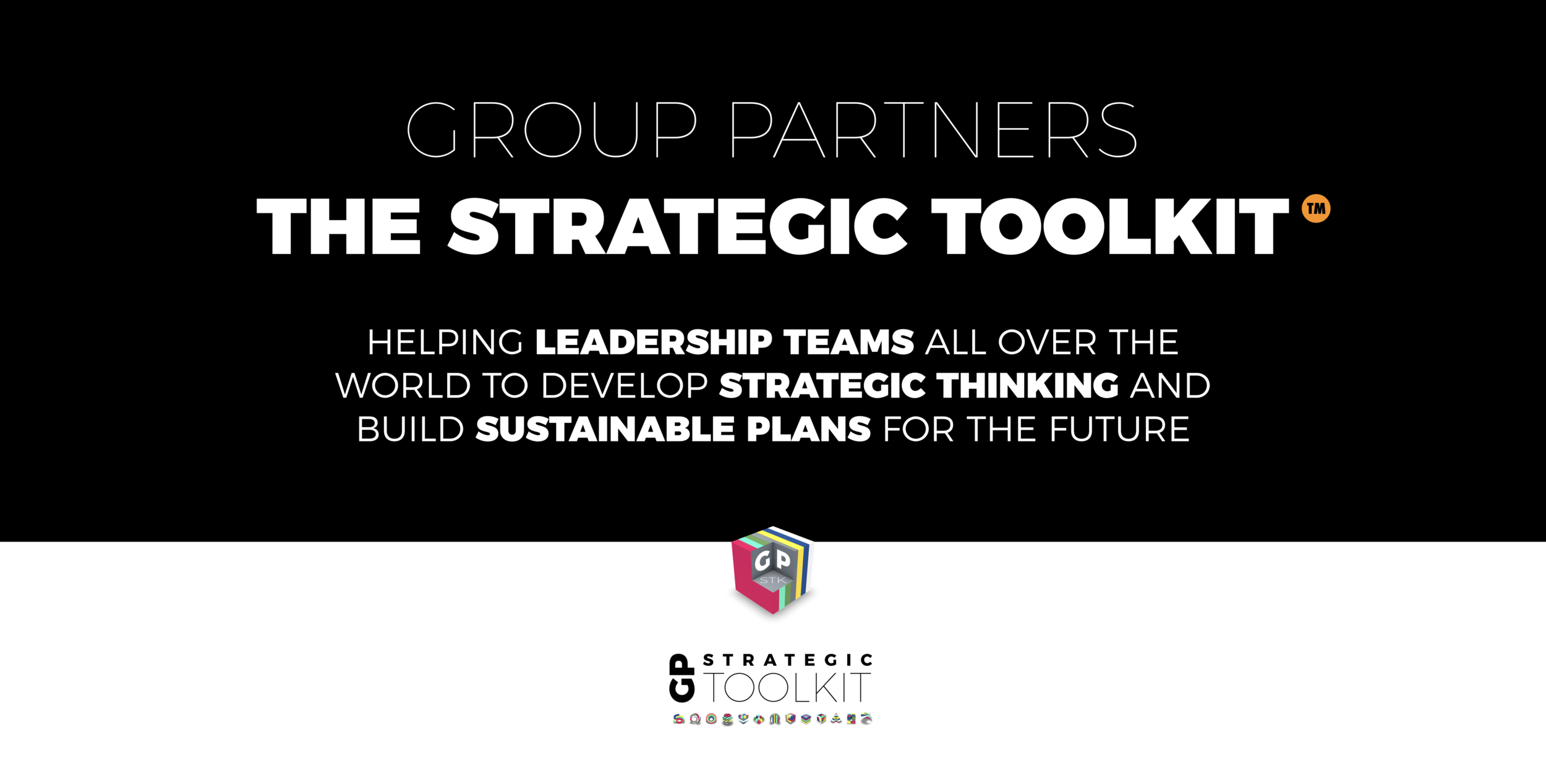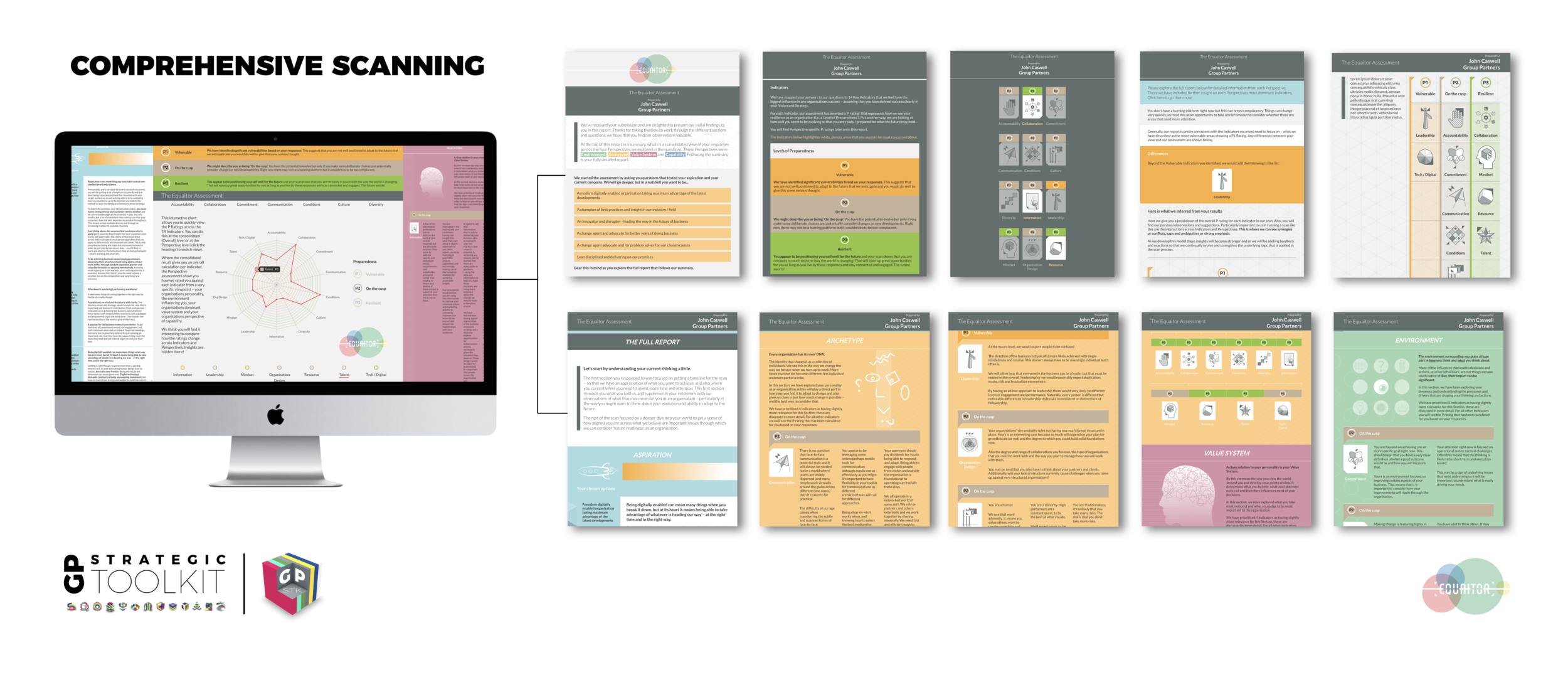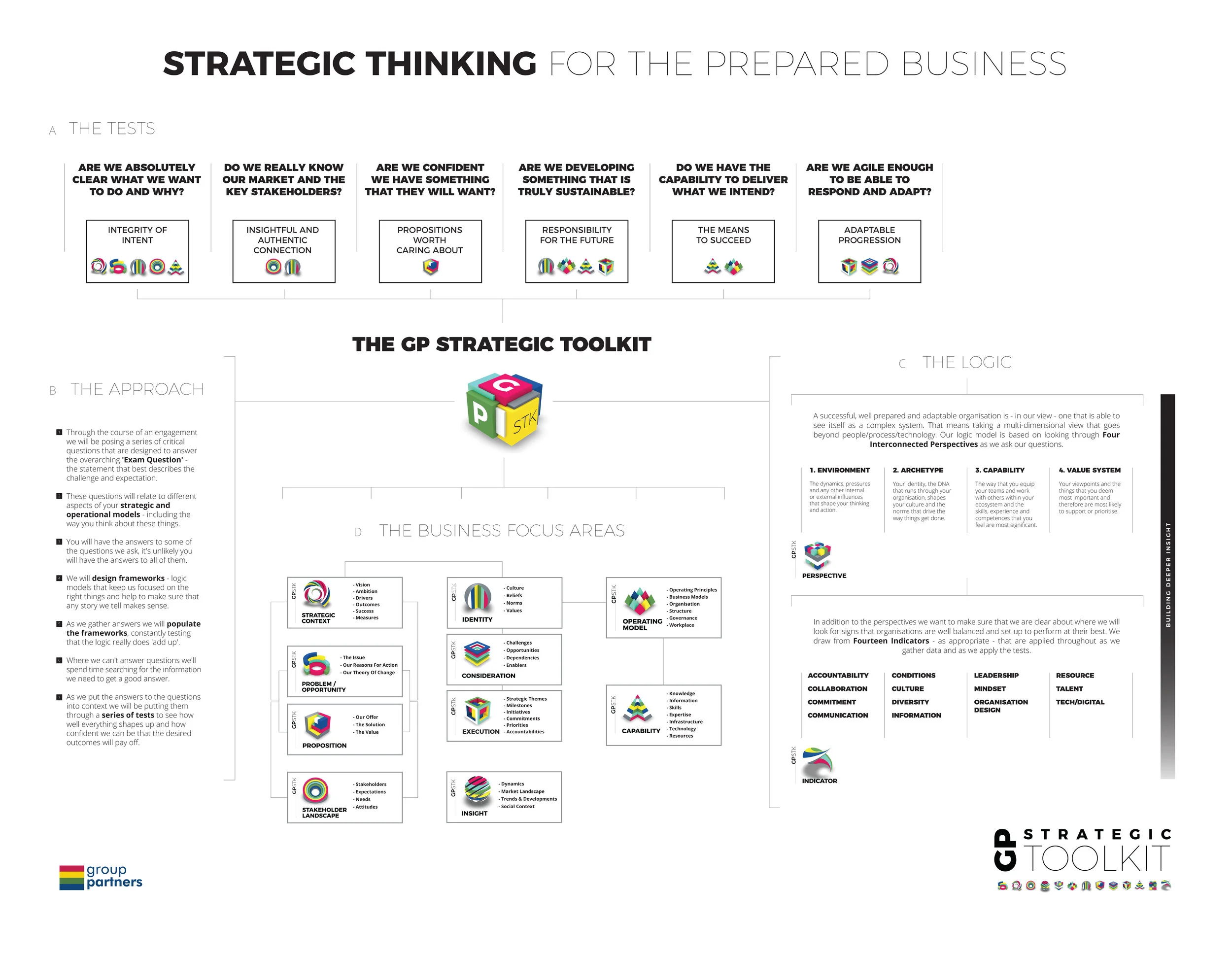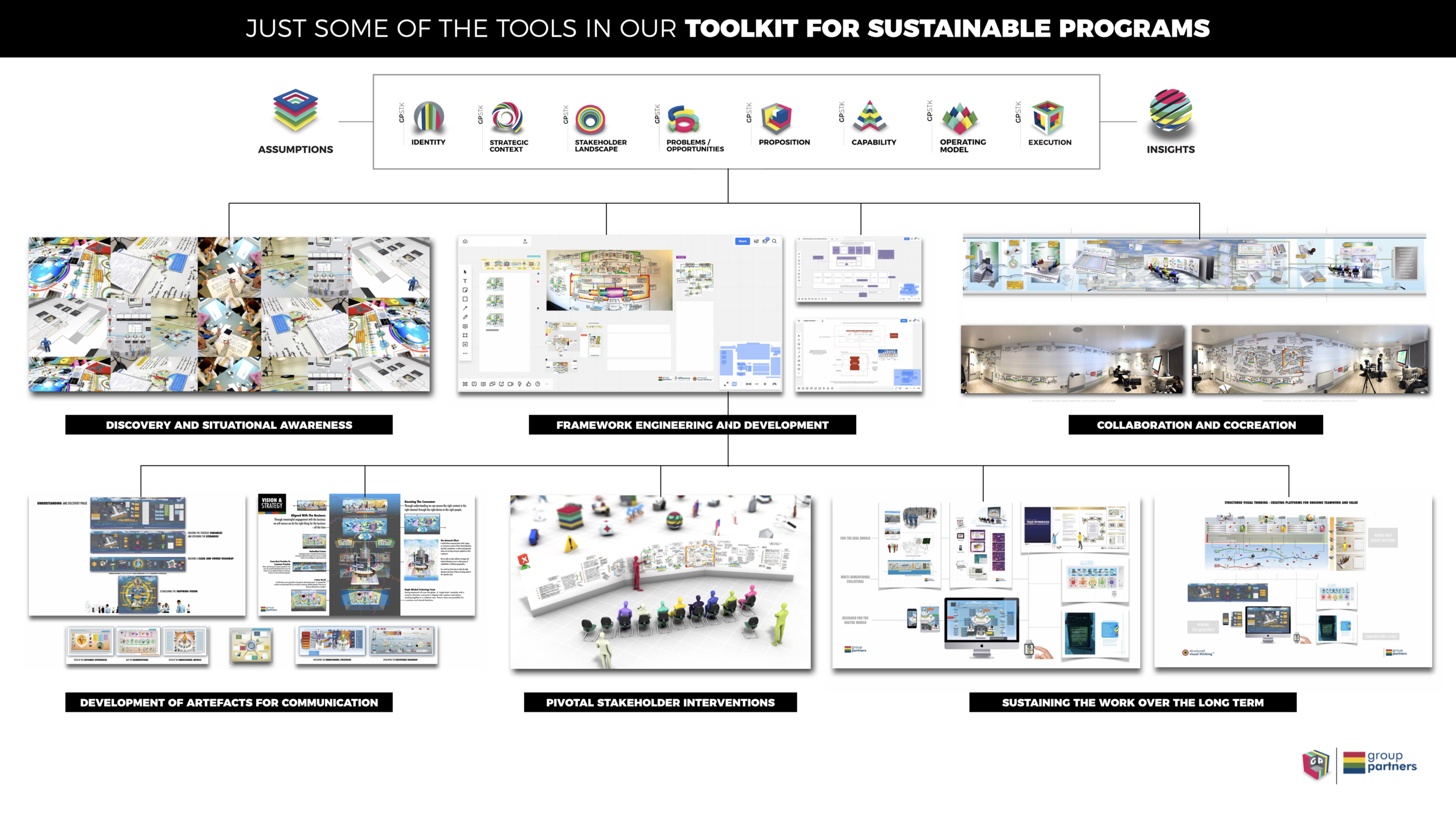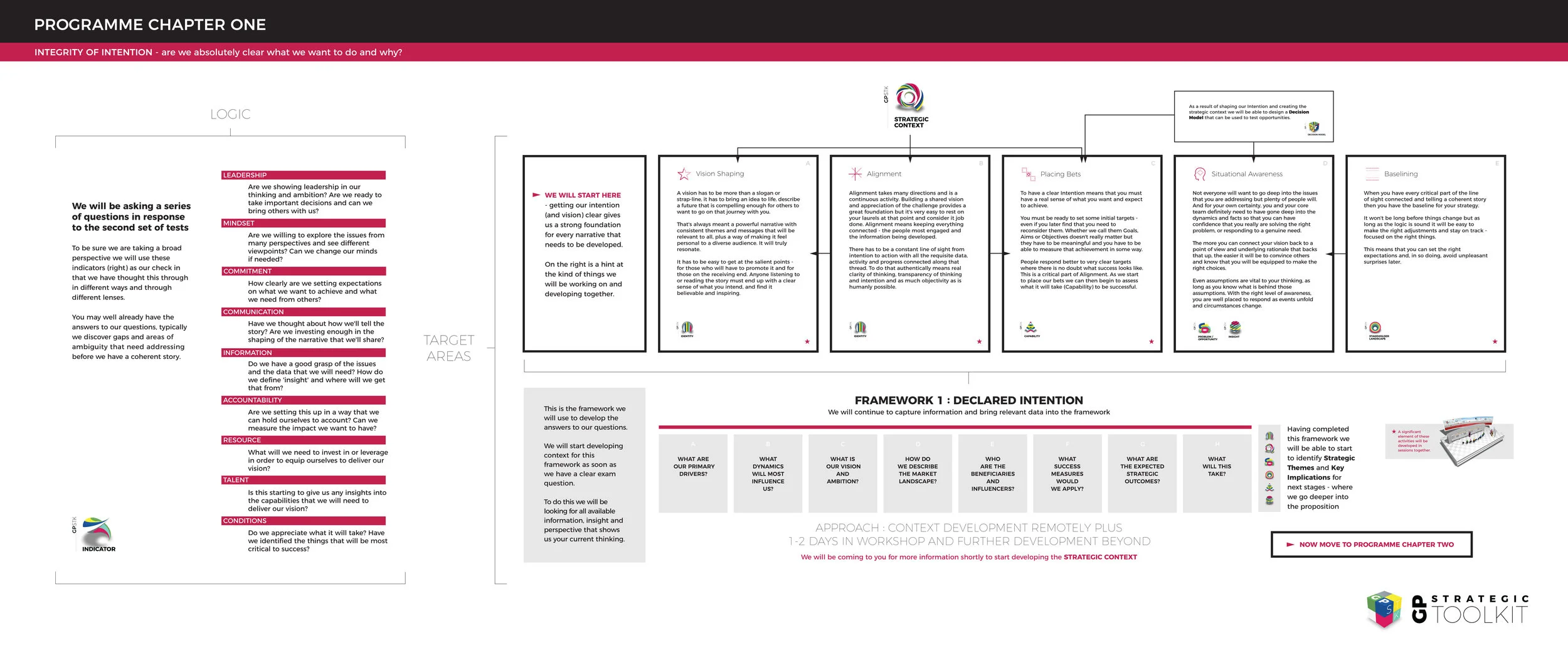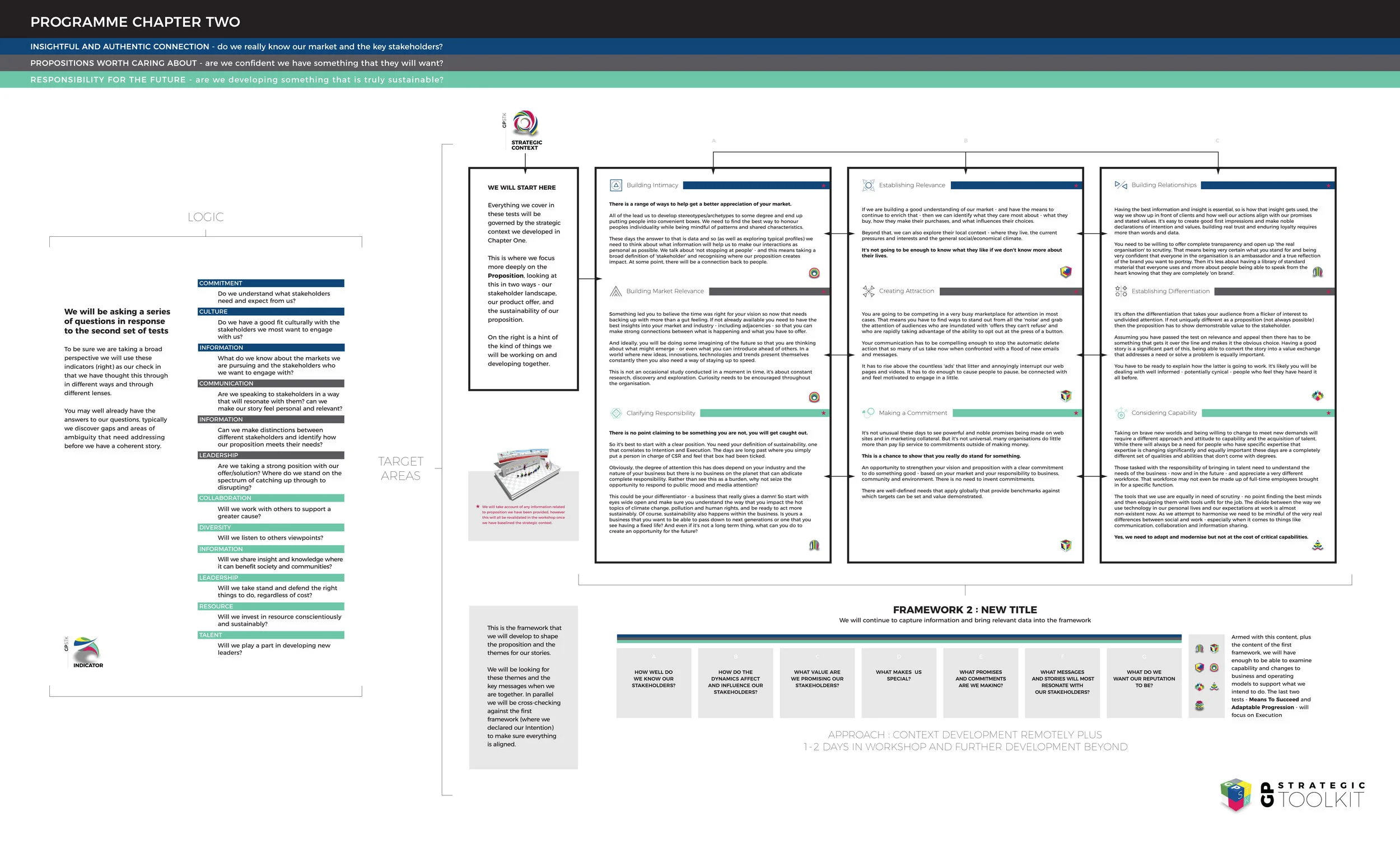WHAT WE ARE DOING:
We are working visually - with structure and logic - to embrace and inspire leadership teams first to imagine and then to develop sustainable strategies for the future.
HOW WE ARE DOING IT:
By fully understand the challenge (The Exam Question) in an entirely holistic and systemic way
By engaging a core team of leaders (decision makers) to co-create the vision and narrative that will guide everyone
By fully understand the challenge (The Exam Question) in an entirely holistic and systemic way
By exploring and ‘mapping’ the unique dynamics of the organisation
By designing the Blueprint for delivering best performance
By working through the implications for the team to move from current to future state
By using a unique blend of visualisation and structure underpinned by a proven logic
Do so through a unique blend of visualisation and structure underpinned by a proven logic
The Focus Areas We Center On
We will be focussed on - The Problem/Opportunity, Identity, Strategic Context, Stakeholder Landscape, The Proposition, The Capability, The Operating Model and Execution.
We are always weaving into each of these - the insights we surface and the assumptions we need to test. Assumptions are tested in many way and through various scans.
Key Definitions
Perspectives - A view of the business that forms a critical part of its 'landscape'.
These perspectives each unpack into specific areas that define them in more detail. As a set they cover everything we want to know about a business and everything that needs to be working in harmony - they add up to a complete picture of the business.
Indicators - Indicators are the characteristics we are most interested in when we examine the business landscape.
They help us to shape and apply the questions that we use to assess an organisation against the perspectives and where we look for signs of preparedness, purpose, responsibility and others.
Scans cover multiple perspectives:
We examine each perspective through a number of indicators.
The questions asked are mapped to perspective and indicator.
The perspective/indicator mappings may well be common across scans as the questions asked are what separates them.
What Will Be The Outcome
We will clearly understand the goals of the operation
We will develop the essential conditions for success - the vision, the intentions, the environment and resources needed
We will generate the ownership and commitment needed and the models of operation upon which the enterprise will work
We will build the ‘platform’, mindset and attitudes for the business to be as prepared as possible for the future.
The team we work with will become activity oriented - creating an engaging narrative,challenge all the assumptions and ensure they are still valid.
We will create meaningful communications across the enterprise, widen the boundaries of the thinking to embrace all stakeholders.
This will ensure the performance is achieved overall and that integration is meaningful, empower the teams to succeed, (aligned and connected to the direction)
We will provide all the right tools, everything set within the appropriate frameworks for measurement and evaluation.
There will be tangible outcomes - consistency of message that resonates with each stakeholder group, strong rationale and where possible direct evidence to support business cases, appropriate measurement, improved collaboration and increased agility of mindset and attitude alongside more relevant business practices.
There will be intangible outcomes - genuine cultural affinity and engagement with the vision and mission, confidence in the decision making capability across dispersed teams, increased levels of motivation and pride and better appreciation of others perspectives.
What Makes This Different
We’ve proven the effectiveness of this approach in large and small client situations all over the world
We’ve worked on every conceivable business challenge through a unique blend of visualisation and structure underpinned by a proven logic
It’s designed to equip teams to sustain outcomes rather than build dependencies on external support
It’s highly engaging - teams really do enjoy the process
It delivers significant progress in a relatively short time-frame
It’s a systemic approach that breaks through silos and artificial barriers
We equip the team with very clear (graphical) help and support at every step




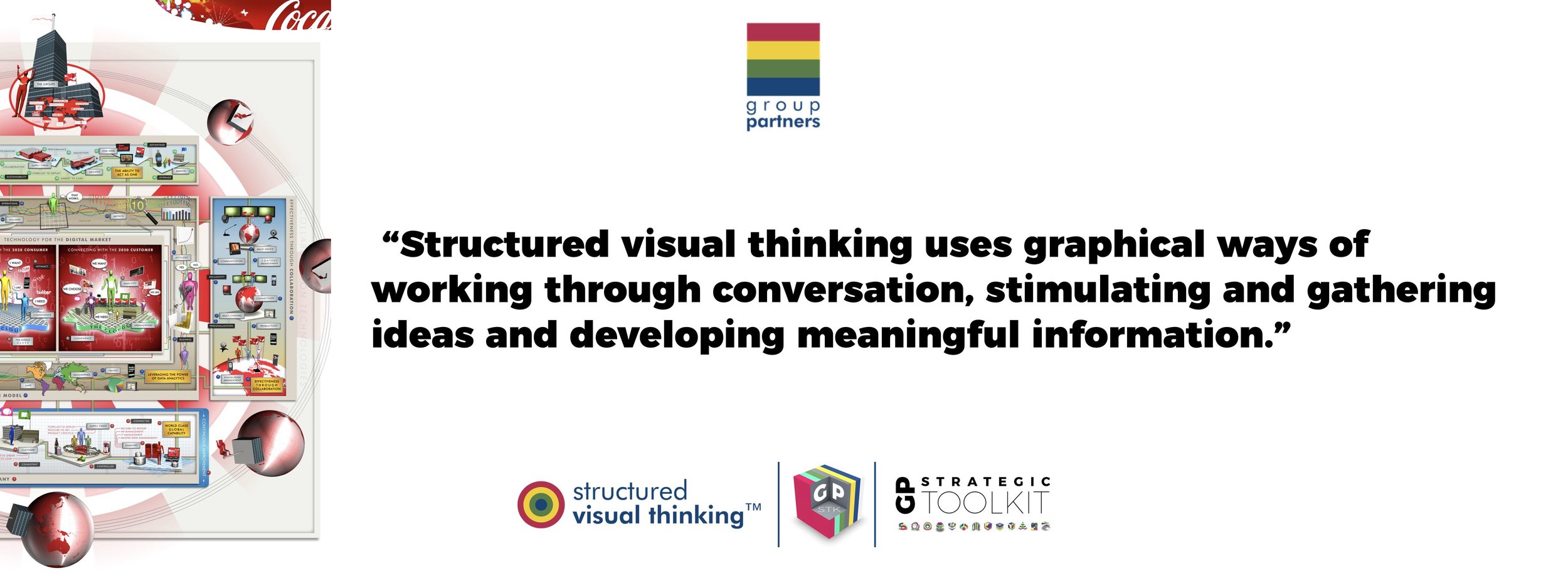







Examples Of The Program Guides We Build In Some Cases
Getting teams ready to engage and stay aligned to the assignment goals.
GETTING THE TEAM READY FOR THE FIRST INTERACTIVE SESSIONS
GETTING THE TEAM READY FOR THE SECOND INTERACTIVE SESSIONS

